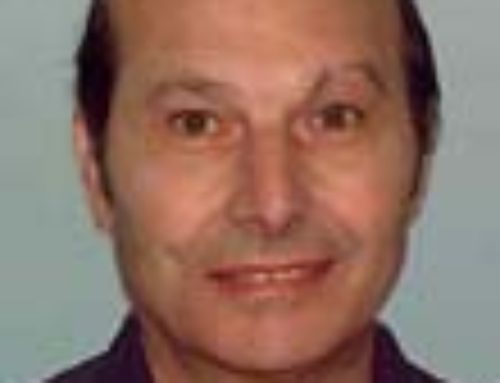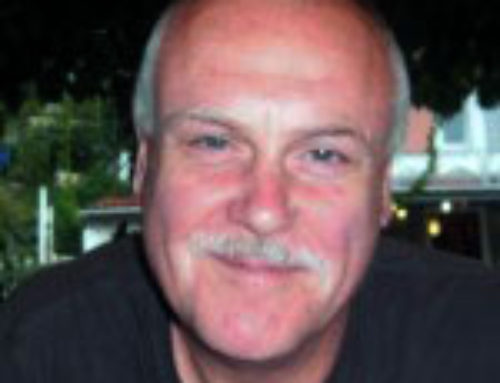When we expand, we will prefer companies, which – like us – contribute to the community
by Zehava Dovrat 21.5.2002 Globes on line
Nessicom, a start up company in its R&D stage, found time during its battle for survival to perform activities for the benefit of the mentally challenged in the Newe Amal Home. David Guterzon: “Meeting software experts opens a window for the mentally handicapped, through which they can feel for themselves what is happening today in the computer world.”
Nessicom, a start-up company for developing location-based services in the mobile Internet environment, won the Globes Award for Small Business for its voluntary activity for the benefit of the mentally handicapped.
Nessicom was founded in 2000 and employs 10 people, 7 of whom are software engineers. The company has already launched several products after having performed various business changes in direction. To date Nessicom has a certain income, but is still fighting for its survival. Nevertheless, the company is already contributing to the community. Yaara Yanay (wife of Elisha Yanay, president of Motorola Israel) is the general manager/CEO of the company and David Guterzon, VP Development, is in charge of the activities for the community.
Since September 2000, Nessicom employees – both managers and workers – meet on a regular basis with the mentally challenged in the Newe Amal Rehabilitation Home and teach them computer skills: applications, software/programs, educational software, games and surfing the Internet – depending on the wishes expressed by the members of the Home. Nessicom employees, all experienced programmers, come to these meetings every two weeks and bring along not only their expertise, but also their readiness to encourage the members of the Home, and give them a sense of belonging and being part of a group.
“Our willingness to communicate with them and to be there for them when they make their first steps in the computer world won the appreciation and enthusiasm of both the handicapped and of those who take care of them”, says Guterzon.
Ms. Sigal Guterzon, the psychologist who initiated the whole project, has accompanied it all along. With her help, Nessicom’s staff succeeded to bring about major changes in the mentally handicapped by creating personal contacts with them and building their confidence. The meetings with healthy people improve both the self-image of the mentally challenged and their quality of life. “The project involves a population that is usually ignored by others, except for those who take care of them”, adds Guterzon. “Meeting software experts opens a window for the mentally handicapped, through which they can feel for themselves what is going on today in the computer field, which is changing our whole society. Thanks to these encounters the mentally handicapped are willing to take risks and face new challenges. They take courses on operating computers, and in certain cases they even work with computers. The project clearly contributes to uplifting their moral and that of their supervisors. The handicapped are highly motivated to learn and to apply what they have learned with us in their daily life.”
How was the project born?
Guterzon: “The initiator was my wife, Sigal, who worked for many years with the mentally handicapped in the Abarbanel Hospital. She came to the conclusion that taking care of the handicapped only keeps them physically healthy, but if you want them to be proud and appreciate their life, you must give them the opportunity to meet people they can respect and who will treat them as equals.
“When we founded Nessicom two years ago I was trying to introduce Sigal to big companies so that they would participate in activities with the mentally challenged. After a short period of time I said to myself: I believe in this project, so why don’t I do it in Nessicom ? I raised it with our general manager and after 10 seconds she agreed.
I am a great believer in community involvement, but in the companies I used to work for it was hard to implement. Here, in Nessicom, the positive response was instantaneous and all of us feel a great deal of satisfaction.
Twenty mentally handicapped people participate in the project, and Nessicom employees even took courses to learn methods of approaching the mentally handicapped. T hey have been doing this voluntary work ever since. “We don’t put money into the project”, says Guterzon, “we invest time: once in two weeks 3-4 of our people go to Herzelia for one and a half hours. It is great fun for our employees. Usually we work under a lot of pressure, but in those days we leave work around noon, and on the way to Herzelia and back we chat amongst ourselves and share our experiences. We have good personal contact with the mentally handicapped: When we enter the room, they greet us with joy and happiness, and it makes us all feel wonderful”.
According to Guterzon, the company management and the employees feel that the project helps build an organizational culture and adds to their feeling that Nessicom is part of the community and is contributing to it. In this way the company carries out the philosophy of the Yanay family (company’s main owners) of involving businesses in the community, a philosophy based on the conviction that such involvement contributes to the business indirectly.
Does such an activity contribute to the business ?
Guterzon: “Certainly, both to the company and to the people. It makes us proud. We added to the website of the company a chapter on contribution to the community. Other companies speak of us and some even try to adopt our approach. I think it builds an organization culture, and indeed nobody has left our company. I believe that it also gives added value to the company in its relations with other organizations. I would like to believe that our company earns the respect of others because of this community involvement and that it gets credit for it. In the future, when we start to market our products, it might also increase our sales.”
Guterzon also thinks that when the company is bigger and has the opportunity to choose with whom to work, it will prefer other companies that contribute to the community. “It reflects the company’s character and its ability to do things not only for profit. It has an added value.” But for now Nessicom cannot afford to be choosy.
Like many others, Guterzon is convinced that contributions to the community must come from within the people themselves. People will not start to get involved in the community just because they are expected to include such activities in their reports. He is convinced that with time more and more companies will join in, and it will be only because they believe in the idea and not because they have to.
In the future Nessicom plans to continue to teach the mentally handicapped more about the Internet, about additional programs, help them design web sites and to correspond with other groups of the project via e-mail. “At this stage we are focusing on one group, but we are considering expanding our activity to more groups when we get bigger”.
“The Globes Award, which we received, can help make us an example to other start-up companies, who can do this kind of activity from the start. This will only do them good. An award such as this one can promote contributing to the community more than 100 speeches by the Minister of Finance.”


